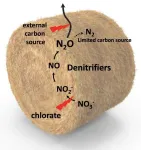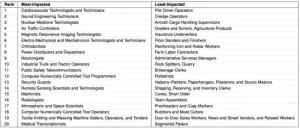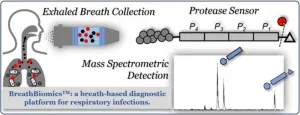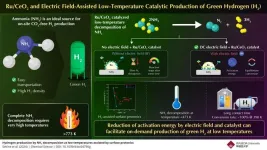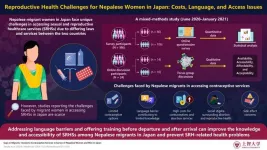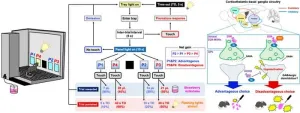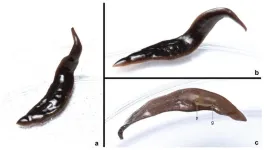(Press-News.org) Today, the University of Phoenix Career Institute® and the Center on Rural Innovation (CORI), a nonprofit seeking to advance economic prosperity in rural communities, released the G.R.O.W. ™ Generating Rural Opportunities in the Workforce™ report, providing a comprehensive look at the barriers Americans living in rural communities face in their day-to-day lives, and the impact these barriers have on career development and advancement opportunities.
The findings of this study underscore the ways in which recent workforce transformation trends are not reaching or benefiting all communities equally — namely an increased focus on skills development, artificial intelligence (AI), and flexibility in where we work, as identified by the University of Phoenix Career Institute® Career Optimism Index® study over the past four years. The G.R.O.W. ™ report indicates that while workers in rural America have a great deal of optimism, they also feel increasingly left behind and under-leveraged as they are unable to stay competitive in their industries due to myriad challenges that stem from limited technological infrastructure — namely a lack of access to quality broadband internet.
This continued gap in access to quality internet divides workers’ future career trajectories and ability to leverage technological innovation, and yet conversations around the future of work race ahead. The G.R.O.W.™ report further unpacks the consequences of this reality, while offering a potential path forward to level the playing field for workers across the country.
Risks to Rural America’s Future Workforce
Workers living in rural America are just as optimistic about the future of their careers as their nonrural counterparts (68% vs. 71%). However, this professional optimism comes at a personal cost. Approximately two-thirds of Gen Z and Millennials living in rural parts of the country have had to consider relocating to act on that optimism and improve their career prospects (61%, 76%). Non-white workers living in rural America are significantly more likely to have considered leaving for employment opportunities in comparison to white workers in rural America (79% vs 66%).
For many, the need to relocate stems from the way rapid technological innovation has transformed the labor market at a rate that outpaces their communities’ ability to access and implement necessary technological infrastructure. Thirty-two percent of workers in rural America report poor quality internet, and 36% report poor quality technology for educational purposes. Without the right resources and tools, local economies cannot unlock their labor markets’ desired opportunities for education and career advancement.
Regardless of age or background, workers in rural America are more likely to feel held back in their career because of where they live compared to nonrural counterparts (49% vs. 30%). This is especially true for rural Gen Z and Millennials (64%, 54%). Resulting dissatisfaction could lose rural America critical community members, especially its future generations and its diversity.
The G.R.O.W.™ report points to the need for a concerted approach to improve local access to career pathways, technological innovation, and education opportunities through greater collaboration between the government, business, nonprofits and higher education.
As a first step, the University of Phoenix Career Institute® and CORI will be hosting a webinar, “Bridging Barriers to Career Opportunity and Economic Growth for the Future of Rural America”, on December 3, 2024, in which key leaders across these sectors will explore the following opportunity areas and the potential for integrated solutions.
What Employers and Institutions Can Do to Support Americans Living in Rural Communities
Capacity Building to Access Public Funding for Infrastructure Improvements: A primary barrier for workers living in rural America, particularly in furthering education, is access to high-quality internet. As previously noted, a third of workers in rural America cite poor / fair quality of technology (36%) and internet (32%) in their area for education. Institutions have an opportunity to support these localities in building capacity to navigate the policy systems in place to access existing funds for improving broadband infrastructure, helping to solve this challenge.
Building Professional Social Capital: Professional social capital is the crucial connections, networks, and resources that help people understand, access, and navigate educational systems and the labor market—and it is a proven accelerant to learner and worker success. This is a top area of concern for workers in rural America, as 47% said they need to develop skills to build a professional network, and 38% cite not having access to the right tools and resources to achieve their career goals, compared to only 20% of their nonrural counterparts. Building formal and informal mentorship programs and hosting local networking events are steps employers and institutions can lead to advance the development of professional social capital among rural workforces.
Career Mapping: Less than half of workers in rural America are satisfied with professional training / skills development opportunities (43%) and job opportunities (41%) in their area, compared to 68% and 67% of their nonrural counterparts. Connecting workers with the right pathways for skills development and overarching career options through personalized career mapping could be a vital key to unlocking advancement.
Fostering Entrepreneurship: More than half of the rural workforce wants to own their own business partially/wholly in the future (51%). This is especially true for Gen Z (53%), Millennials (56%) and Gen X (50%). In fostering pathways to entrepreneurship, institutions can help workers in rural communities broaden potential for employment by creating opportunities in industries that may not already exist locally and spurring the local economy.
“The University of Phoenix Career Institute was founded to underscore our commitment to understanding the barriers our students, as well as workers across America face, in order to develop career pathways and wrap-around services that can effectively support them in reaching their professional goals,” said Raghu Krishnaiah, Chief Operating Officer for University of Phoenix.
“Workers in rural communities are a critical segment of the workforce, and they have much to contribute to conversations around the future of work. In commissioning the G.R.O.W.™ report and convening key voices across government, nonprofit, business, and education during our upcoming webinar, we can increase our capability to serve current and potential students from these communities and determine the best solutions to fuel the future of the rural workforce for their betterment as well as the American economy as a whole,” Krishnaiah said.
Housed within the University’s College of Doctoral Studies, the University of Phoenix Career Institute® seeks to form meaningful partnerships with leading organizations like CORI to break down barriers to career advancement, as identified through its research.
“At CORI, we’ve long observed a strong desire for career opportunities that keep people in their hometowns and the University of Phoenix Career Institute® G.R.O.W.™ report brings a new perspective to this conversation,” said Matt Dunne, Founder and Executive Director of Center on Rural Innovation. “It is powerful to hear that 86% of rural workers believe there should be more partnership between employers and education institutions to create employment opportunities. Collaborating to establish broad and deep networks of cross-sector support is critical to generating impactful educational and employment offerings — and integral to creating sustainable new pathways to prosperity in rural communities. We look forward to digging into the tactical side of what this can look like moving forward.”
For more about the Center on Rural Innovation, visit https://ruralinnovation.us/.
For more information about the University of Phoenix Career Institute, the complete G.R.O.W. report, and the upcoming “Bridging Barriers to Career Opportunity and Economic Growth for the Future of Rural America” webinar, visit www.phoenix.edu/career-institute.
ABOUT THE G.R.O.W. GENERATING RURAL OPPORTUNITIES IN THE WORKFORCE™ REPORT
The G.R.O.W. Generating Rural Opportunities in the Workforce report is a comprehensive study on the barriers Americans living in rural communities face in their day-to-day lives, and the impact these barriers have on career development and advancement opportunities. The study was conducted by the University of Phoenix Career Institute®, part of the University’s College of Doctoral Studies, in partnership with the Center on Rural Innovation— a nonprofit seeking to advance economic prosperity in rural communities — in order to unpack the consequences of the slower adoption of technological infrastructure in rural communities and the subsequent workforce barriers that keep workers in rural America from benefiting from the latest workforce trends.
The G.R.O.W.™ report comprised a 15-minute online survey of workers in rural America (n=1,000) and workers in nonrural America (n=986). All participants were U.S. adults (age 18 and up) who were employed or seeking employment at the time of research. Researchers conducted fieldwork between May and June 2024. Rural residency was determined using the Rural-Urban Continuum Codes that are publicly available from the US Department of Agriculture (USDA). A full methodology can be found at www.phoenix.edu/career-institute.
ABOUT THE UNIVERSITY OF PHOENIX CAREER INSTITUTE®
University of Phoenix Career Institute® was created to address broad, persistent, and systemic barriers to career advancement through research-based solutions and impactful partnerships that break down barriers Americans face in their careers.
ABOUT UNIVERSITY OF PHOENIX
University of Phoenix innovates to help working adults enhance their careers and develop skills in a rapidly changing world. Flexible schedules, relevant courses, interactive learning, skills-mapped curriculum for our bachelor’s and master’s degree programs and a Career Services for Life® commitment help students more effectively pursue career and personal aspirations while balancing their busy lives. For more information, visit phoenix.edu.
ABOUT CENTER ON RURAL INNOVATION
The Center on Rural Innovation (CORI) is a national nonprofit committed to advancing economic prosperity in rural America through the creation of inclusive tech economy ecosystems that support scalable entrepreneurship and tech job creation. Established in 2017, CORI is at the heart of a dynamic social enterprise focused on closing the rural opportunity gap. The organization partners with a taxable nonprofit, Rural Innovation Strategies, Inc. (RISI), and a seed fund, the CORI Innovation Fund, focused on early-stage technology companies located in rural areas. For more information, visit www.ruralinnovation.us.
END
New report from the University of Phoenix Career Institute® and the Center on Rural Innovation reveals keys to retaining rural America’s future generation
Geography often becomes a barrier for workers in rural America, particularly those of younger generations, as they feel driven to leave their communities to progress in their careers
2024-09-24
ELSE PRESS RELEASES FROM THIS DATE:
Greenhouse gas emissions from silage fed to livestock
2024-09-24
Changes in silage production could help cut greenhouse gas emissions from agriculture. Agriculture is the largest source of nitrous oxide (N2O) emissions in the United States. N2O is the third most impactful greenhouse gas, yet one potential source—silage—has not been thoroughly studied. Silage, which is moist, harvested plant material used to feed livestock during the winter, is preserved through fermentation. During this process, anaerobic bacteria produce lactic acid, which prevents the plants from spoiling. Jeongdae Im and colleagues suggest that silage could be a significant ...
The impact of AI on specific jobs
2024-09-24
Artificial intelligence (AI) may reshape many industries, but the impact of the nascent technology on various jobs remains unclear. Daniele Quercia and colleagues used machine learning to investigate itself, by identifying patents for AI technologies that may impact various occupational tasks. The model used a dataset of 17,879 task descriptions from O*NET, a US government-run occupations database, as well as 24,758 AI patents filed with the United States Patent and Trademark Office between 2015 and 2022 and measured semantic similarity between occupation task descriptions and patent descriptions. The analysis was not merely an exercise ...
Diagnosing respiratory infections with breath
2024-09-24
A proof-of-concept study promises the speedy diagnosis of lower respiratory tract infections through analysis of human breath. Lower respiratory tract infections, such as bronchitis, pneumonia, and bronchiolitis, are currently diagnosed by culturing bacteria from respiratory specimens, but the procedure is invasive, laborious, and time intensive. Molecular sequencing techniques cannot differentiate between clinical infection and mere colonization, in which bacteria are benignly present in the respiratory tract. Dapeng Chen and colleagues have designed a medical device that measures the protease activity ...
Well-being as student success
2024-09-24
In a Perspective, Holly C. White and colleagues argue that student well-being should be a goal of pedagogy, along with traditional metrics such as GPA and student retention. Despite evidence linking certain academic experiences with well-being outcomes, few students report having had such experiences. Well-being is defined as a sense of belonging, agency, purpose, identity, civic engagement, and financial well-being. The authors summarize data-backed teaching practices that support elements of student well-being, including supportive mentorships and experiential or authentic learning opportunities. Six exceptional initiatives are described, which can act as models ...
Spinning artificial spider silk into next-generation medical materials
2024-09-24
It’s almost time to dust off the Halloween decorations and adorn the house with all manner of spooky things, including the classic polyester spider webs. Scientists reporting in ACS Nano have made their own version of fake spider silk, but this one consists of proteins and heals wounds instead of haunting hallways. The artificial silk is strong enough to be woven into bandages that helped treat joint injuries and skin lesions in mice.
Spider silk is one of the strongest materials on Earth, technically stronger than steel for a material of ...
Low-temperature conversion of ammonia to hydrogen via electric field-aided surface protonics
2024-09-24
Hydrogen gas, owing to its high energy density and carbon-free nature, is gaining much attention as the energy source for a green and sustainable future. Despite being the most abundant element in the universe, hydrogen is mostly found in a bound state as chemical compounds such as ammonia, metal hydrides, and other hydrogenated compounds.
Among all the hydrogen carriers, ammonia stands out as a promising candidate owing to its wide availability, high hydrogen content with hydrogen making up 17.6% of its mass, and ease of liquefaction as well as transportation. A major drawback that hinders its exploitation as an ...
Challenges in availing reproductive health services experienced by migrant Nepalese men and women in Japan
2024-09-24
Despite a substantial Nepalese community in Japan many Nepalese women face significant challenges in accessing essential sexual and reproductive health services (SRHSs) due to language barriers and differences in healthcare laws and services between Nepal and Japan. In Nepal, women have free access to a wide range of contraceptive and abortion services, while Japan places more restrictions on certain contraceptives and does not provide free abortion services. These limited options make women more reliant on their male partner to use contraceptives for birth control. These challenges in accessing contraceptives, especially female-oriented contraceptives, lead them to acquire contraceptives ...
A risky business: Why do some Parkinson’s disease treatments affect decision making?
2024-09-24
Parkinson’s disease (PD), also known simply as Parkinson’s, is a disorder of the nervous system that affects millions of people worldwide. The nerve cell damage associated with Parkinson’s can cause tremors, slowed movements, problems with balance, and many other symptoms which worsen gradually over time. Although there is no cure, there are medications available that can treat PD symptoms. Some of these medications, however, have previously unexplained side effects – including impaired decision-making that leads to potentially harmful behaviors such as pathological gambling, binge eating and compulsive shopping.
Now, in ...
New species of flatworm invading the United States
2024-09-24
A new species of flatworm has been discovered and has already invaded several states in the southern United States. The particularity of the new species is that it looks a lot like Obama nungara, a species that has invaded much of Europe. The new species has been named Amaga pseudobama in reference to this resemblance.
An international team reports the discovery of a new species of flatworm. The team includes researchers from National Museum of Natural History in Paris, France, Drexel University and North Carolina State ...
First observation of ultra-rare process that could uncover new physics
2024-09-24
Scientists at CERN have discovered an ultra-rare particle decay process, opening a new path to find physics beyond our understanding of how the building blocks of matter interact.
Today the NA62 collaboration presented at a CERN EP seminar the first experimental observation of the ultra-rare decay of the charged kaon into a charged pion and a neutrino-antineutrino pair (K+ → π p+νν).
This is an ultra-rare occurrence - the Standard Model (SM) of particle physics, which explains how particles ...
LAST 30 PRESS RELEASES:
ASU researchers to lead AAAS panel on water insecurity in the United States
ASU professor Anne Stone to present at AAAS Conference in Phoenix on ancient origins of modern disease
Proposals for exploring viruses and skin as the next experimental quantum frontiers share US$30,000 science award
ASU researchers showcase scalable tech solutions for older adults living alone with cognitive decline at AAAS 2026
Scientists identify smooth regional trends in fruit fly survival strategies
Antipathy toward snakes? Your parents likely talked you into that at an early age
Sylvester Cancer Tip Sheet for Feb. 2026
Online exposure to medical misinformation concentrated among older adults
Telehealth improves access to genetic services for adult survivors of childhood cancers
Outdated mortality benchmarks risk missing early signs of famine and delay recognizing mass starvation
Newly discovered bacterium converts carbon dioxide into chemicals using electricity
Flipping and reversing mini-proteins could improve disease treatment
Scientists reveal major hidden source of atmospheric nitrogen pollution in fragile lake basin
Biochar emerges as a powerful tool for soil carbon neutrality and climate mitigation
Tiny cell messengers show big promise for safer protein and gene delivery
AMS releases statement regarding the decision to rescind EPA’s 2009 Endangerment Finding
Parents’ alcohol and drug use influences their children’s consumption, research shows
Modular assembly of chiral nitrogen-bridged rings achieved by palladium-catalyzed diastereoselective and enantioselective cascade cyclization reactions
Promoting civic engagement
AMS Science Preview: Hurricane slowdown, school snow days
Deforestation in the Amazon raises the surface temperature by 3 °C during the dry season
Model more accurately maps the impact of frost on corn crops
How did humans develop sharp vision? Lab-grown retinas show likely answer
Sour grapes? Taste, experience of sour foods depends on individual consumer
At AAAS, professor Krystal Tsosie argues the future of science must be Indigenous-led
From the lab to the living room: Decoding Parkinson’s patients movements in the real world
Research advances in porous materials, as highlighted in the 2025 Nobel Prize in Chemistry
Sally C. Morton, executive vice president of ASU Knowledge Enterprise, presents a bold and practical framework for moving research from discovery to real-world impact
Biochemical parameters in patients with diabetic nephropathy versus individuals with diabetes alone, non-diabetic nephropathy, and healthy controls
Muscular strength and mortality in women ages 63 to 99
[Press-News.org] New report from the University of Phoenix Career Institute® and the Center on Rural Innovation reveals keys to retaining rural America’s future generationGeography often becomes a barrier for workers in rural America, particularly those of younger generations, as they feel driven to leave their communities to progress in their careers

